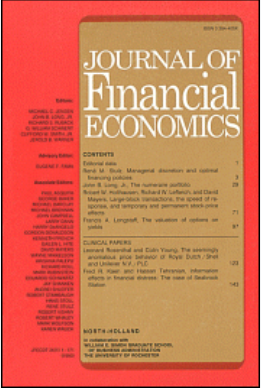Household debt overhang and human capital investment
IF 10.4
1区 经济学
Q1 BUSINESS, FINANCE
引用次数: 0
Abstract
Unlike labor income, human capital is inseparable from individuals and does not completely accrue to creditors. Therefore, human capital investment is more resilient to “debt overhang” than labor supply. We develop a dynamic model displaying this difference. We find that while both labor supply and human capital investment are hump-shaped in household indebtedness, human capital investment declines less aggressively as indebtedness builds up. Importantly, because human capital is only valuable when households expect to supply labor, the greater reduction in labor supply due to debt overhang back-propagates into ex-ante human capital investment. We provide empirical support for the model.
家庭债务积压和人力资本投资
与劳动收入不同,人力资本与个人不可分割,并不完全归债权人所有。因此,人力资本投资比劳动力供给更能抵御“债务积压”。我们开发了一个动态模型来显示这种差异。我们发现,虽然劳动力供给和人力资本投资在家庭负债中呈驼峰形,但随着债务的增加,人力资本投资的下降幅度较小。重要的是,由于人力资本只有在家庭期望提供劳动力时才有价值,因此由于债务积压导致的劳动力供给的更大减少会反向传播为事前人力资本投资。我们为模型提供了实证支持。
本文章由计算机程序翻译,如有差异,请以英文原文为准。
求助全文
约1分钟内获得全文
求助全文
来源期刊

Journal of Financial Economics
Multiple-
CiteScore
15.80
自引率
4.50%
发文量
192
审稿时长
37 days
期刊介绍:
The Journal of Financial Economics provides a specialized forum for the publication of research in the area of financial economics and the theory of the firm, placing primary emphasis on the highest quality analytical, empirical, and clinical contributions in the following major areas: capital markets, financial institutions, corporate finance, corporate governance, and the economics of organizations.
 求助内容:
求助内容: 应助结果提醒方式:
应助结果提醒方式:


